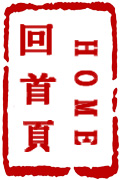
酒馆儿博士
PubhD Leicester
Mungo Zhangruibo is a final year PhD student at De Montfort Univeristy. His research, CHEARS, focus on the Electroacoustic Music Study, also well-known as Music and Technology, which consists of the translation and adaptation of terminology from English with its alphabet to Chinese and its pictograms, or the other way around. Having taken the terminology research as the basis, he is also trying to introduce a classification system interacting with the Western and the Eastern method. For example, Taxomony vs. the Five Elements: the methodology is traced back to Aristotle in Greece and the Metal, Wood, Water, Fire, Earth in Chinese culture originally.
*Grouping (odd one out):
1) onion, sausage, aubergine, cauliflower
2) boxing, taichi, kickboxing, womad
*Ordering:
Chronological order:
1600's (Baroque)
1700's (Classical)
1800's (Romantic)
1900's (Modern or Contemporary)
*Compound Subjects (odd one out?):
1) Brahms, Schumann, Bizet, Goethe
2) turtle, chicken, sheep, pig
*Citation order in [FRESH, TINNED, FROZEN] for peas, sweetcorn and carrots in supermarket.
*System in taxonomy; Structure in hierarchy; Scheme in tree (top-down).
*Folksonomy: "The Five Elemental Energies of Wood, Fire, Earth, Metal, and Water encompass all the myriad phenomena of nature. It is a paradigm that applies equally to humans." (Source: The Yellow Emperor's Classic of Internal Medicine in 2nd century BC)
Mutual Creation (supporting to each other)
wood, fire, earth, metal, water, wood
Mutual Destruction (controlling to each other)
wood, earth, water, fire, metal, wood
Organs:
Wood as Liver
Fire as Heart
Earth as Spleen (Stomach)
Metal as Lung
Water as Kidney
Emotions:
Wood as Anger
Fire as Joy
Earth as Think (excessive mental activity)
Metal as Sadness
Water as Fear (anxiety)
Flavours (Tastes in Chinese food)
In traditional Chinese philosophy, the Five Elements theory can be applied to everything and is used to describe interactions and relationships between phenomena in the universe. This theory is actually fundamental to the Chinese health care system and the foundation of traditional Chinese medicine.
sour to the liver
bitter to the heart
sweet to the spleen
spicy to the lungs
salty to the kidneys
Sour wood-energy foods are prescribed for weak livers but not advised for overactive livers.
Spicy metal-energy foods stimulate the lungs and large intestine.
Salty water-energy foods have a diuretic effect on the kidneys and bladder.
*The application of the Five Elements
In Taichi:
Center, Forward&Backward, Left&Right (flexibility with strength inside)
Earth, Fire&Water, as well as Wood&Metal
--
In Music and Technology:
Earth: Concept of Musicology of Electroacoustic Music (MEM)
Fire vs. Water: Technology (PPP&SPM) vs. Structure and Musical
Metal&wood: Disciplines and Genres&Categories
Start Time: 2016年8月9日/19:30
End Time: 2016年8月9日/21:30
城市/City: 莱斯特/Leicester
地点/Venue:
主办/Sponsor
主讲/Lecturer
交互传译/Interpreter
筹办/Organizer
关键词/Keywords
信息/Message
发表信息(预先注册)/Add message on this lecture(members ONLY)